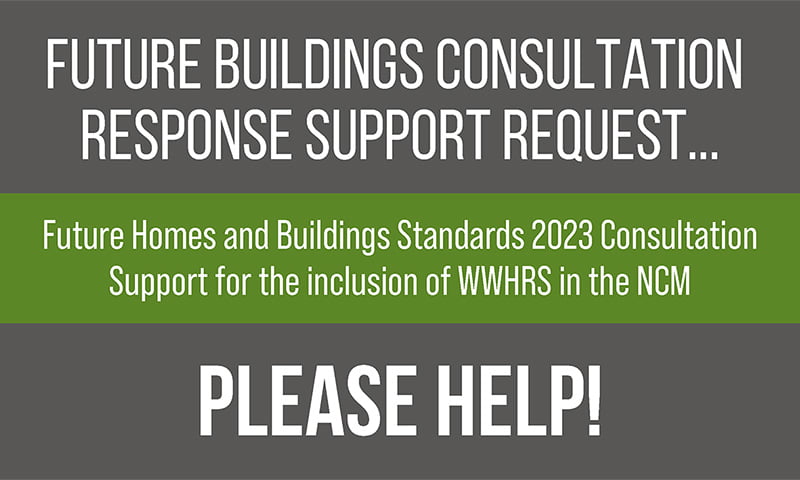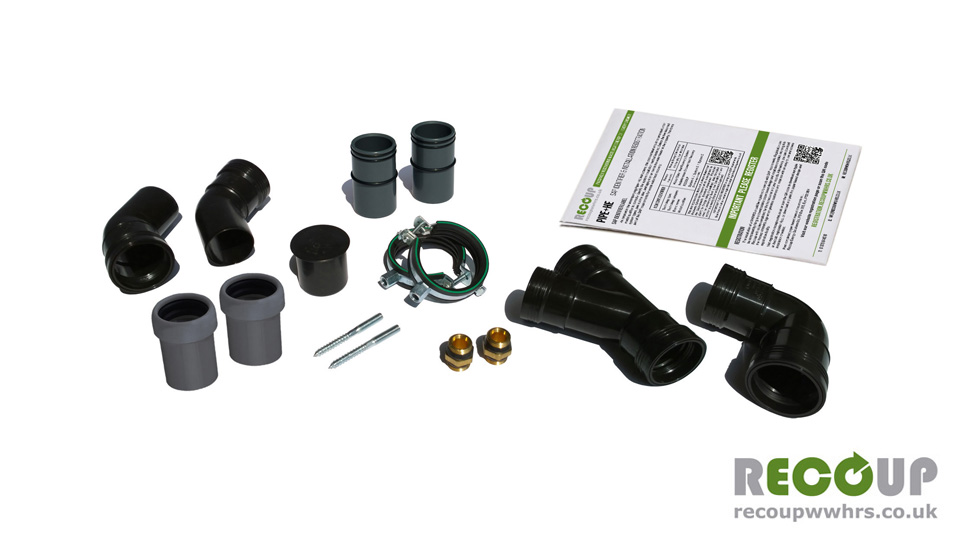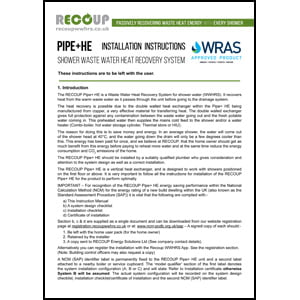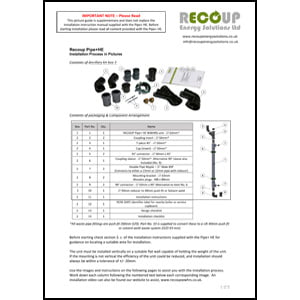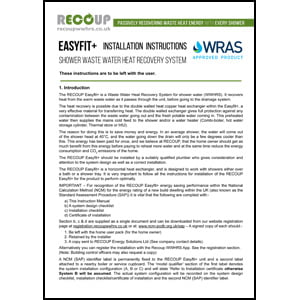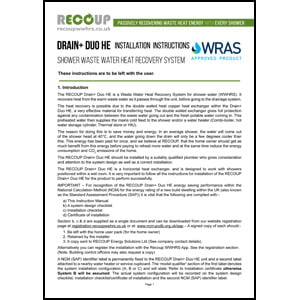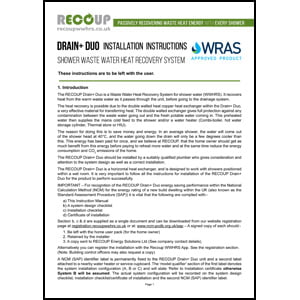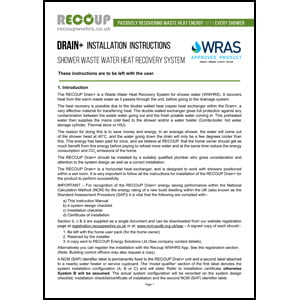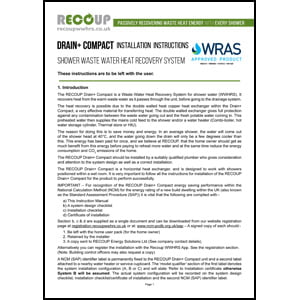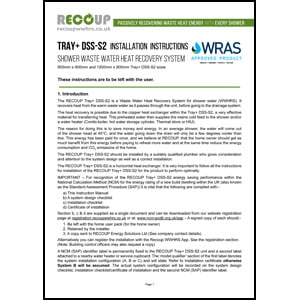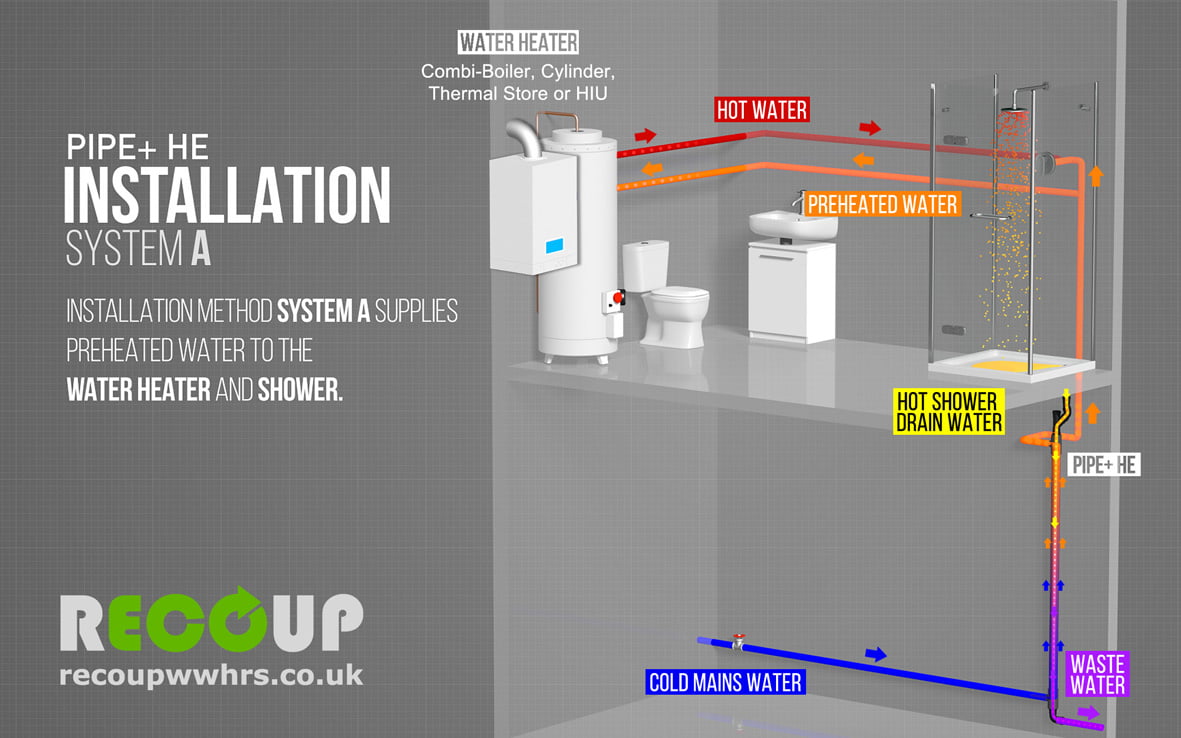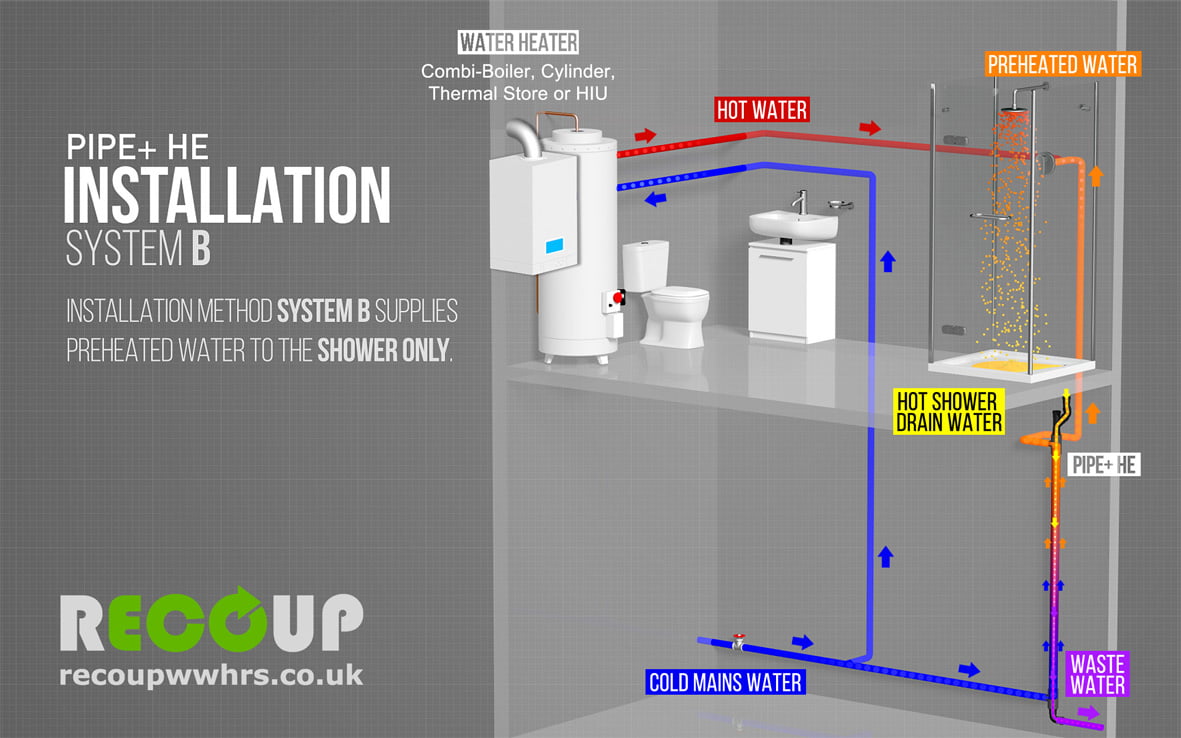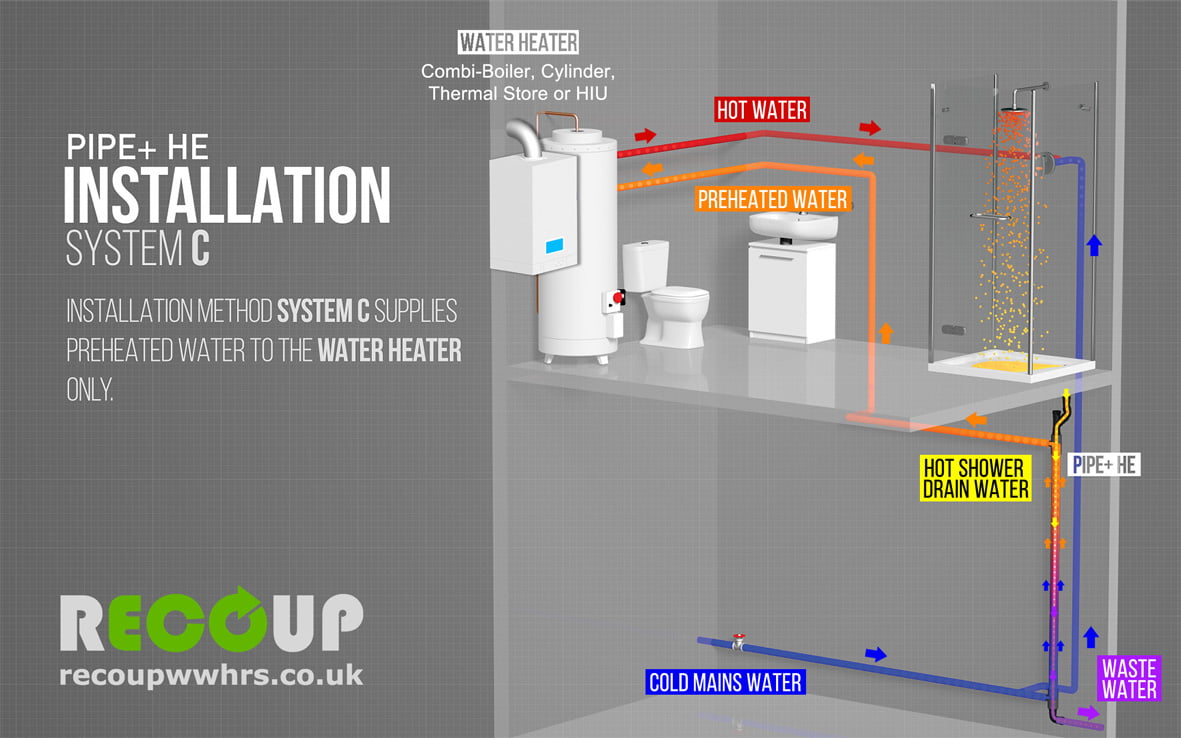Waste Water Heat Recovery for Showers
Future Buildings Consultation Response Support Request… Please Help
Dear Industry colleagues,
Waste Water Heat Recovery needs your help!
Send your support
We ask you to support us in our call for Waste-Water Heat Recovery for Showers (WWHRS) to be represented in the National Calculation Methodology (NCM), so that WWHRS can be incorporated simply and efficiently into DSM modelling for Non-Residential projects.
Therefore, we are asking for Industry colleagues to include the information below within their FHS/FBS consultation response OR alternatively, please feel free to respond positively to this email if you support it, so that we may add you to the list of supporters of the statement for our own consultation submission.
Please take a moment to read our statement below:
I would like to highlight an issue around non-domestic Part L compliance ‘DSM’ modelling and the current inability to model the energy-saving impact of waste water heat recovery (WWHRS) within the National Calculation Methodology (NCM). This is out of step with the SAP calculation methodology for dwellings and the simplified SBEM methodology, both of which do allow for WWRHS to be accounted for.
The Part L notional building is rightfully being pushed to higher standards, and the latest Part L 2021 iteration is a significant jump from the previous 2013 version. This means that it is more vital than ever that designers explore all energy savings measures and incorporate them into specifications wherever appropriate. Furthermore, many local policies such as the London Plan require additional uplift over and above building regulations, and in the case of the London Plan it is prescriptive that; “waste water heat recovery, must also be investigated and set out in the energy assessment”.
However, it is not possible to make this assessment or demonstrate the energy-saving potential to clients in the case of WWHRS. due to this omission in the NCM.
For non-domestic buildings with high shower usage, incorporating WWHRS could be a cost-effective way to reduce energy and carbon emissions, but because it cannot be included within the DSM and building regulation compliance process, it is often ignored in favour of other energy-saving measures, some of which might not be as appropriate or effective as WWHRS could have been.
In addition, the lack of any official methodology for incorporating WWHRS into DSM modelling is putting energy modellers and particularly Low Carbon Energy Assessors in a challenging professional position, as it is difficult to explain to clients and wider design teams why predicted regulated emissions are not improving as a result of specifying WWHRS, and this can have significant financial implications for the project.
As a result, modellers and assessors can find themselves under pressure to implement workarounds and non-standard approaches at the planning and design stages, but this puts them and their employers at risk if the accrediting bodies (or even subsequent assessors) do not agree with or accept their design stage approach at the ‘as-built’ stage or in the event of an audit.
So far, all attempts to get a blanket non-standard approach agreed with software vendors or accrediting bodies has been unsuccessful. It is our hope that, through this consultation, this omission can be rectified within the next version of the NCM.
Critical to making this happen is gaining as much industry support as possible, this is why we are reaching out to you now. The consultation is only open until the 6th March so time is of the essence.
Thank you for your support!
Best regards,
Recoup Technical Team
The Recoup Knowledge Base is our fully searchable library of information available 24 hours a day. Quickly find answers to common questions or deep-dive full in-depth technical articles, product information and design walk-thrus, as well as, key articles, industry news and a growing list of case studies.
Visit Recoup Knowledge Base.

